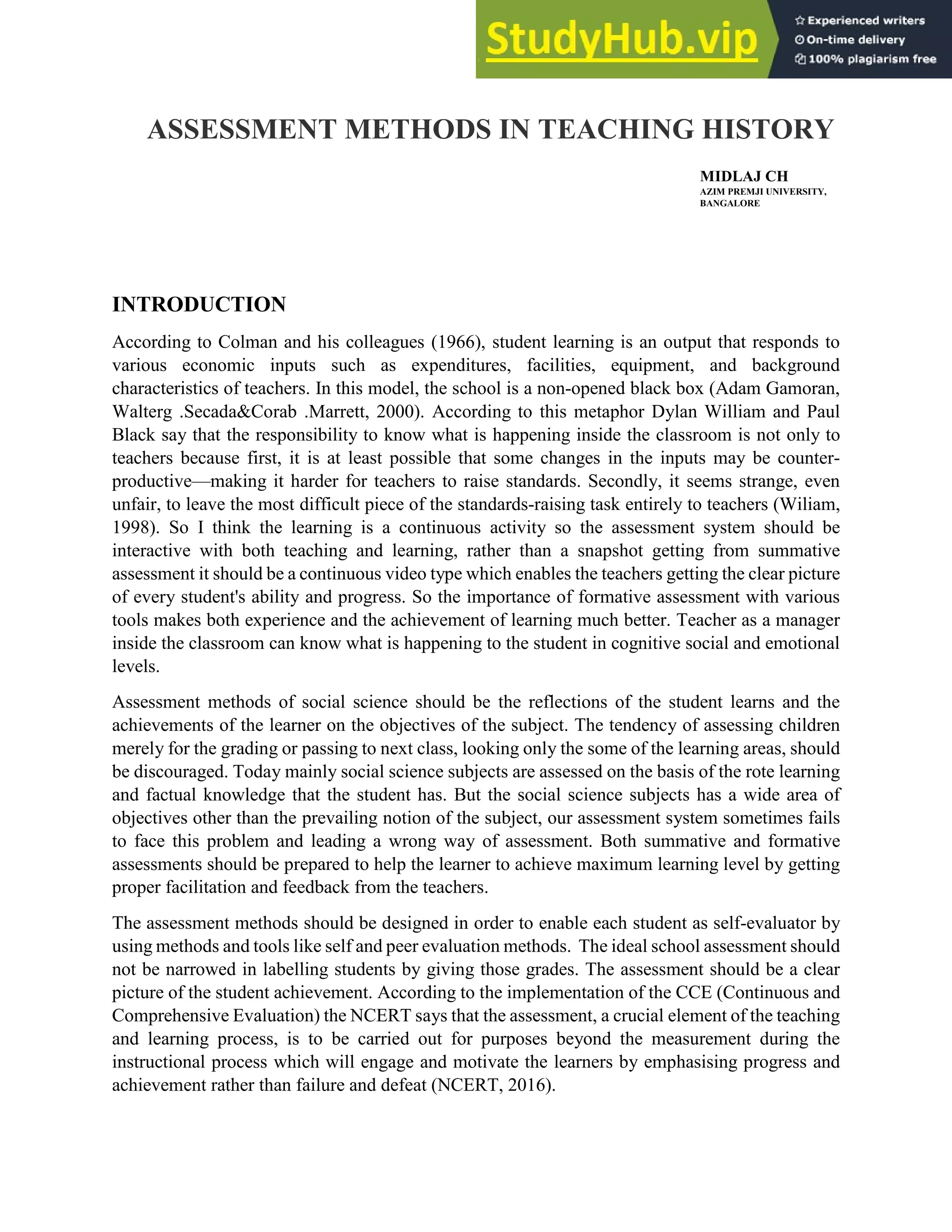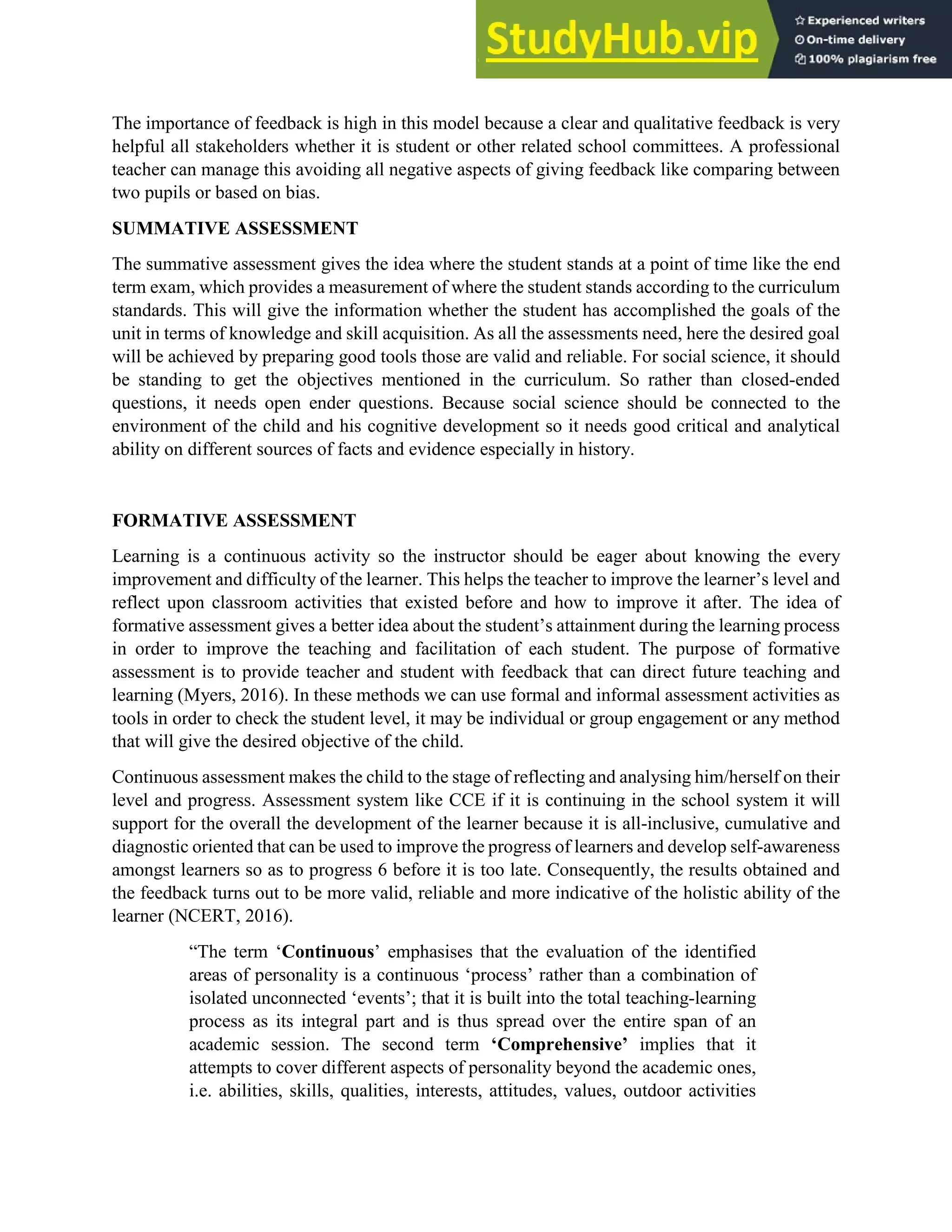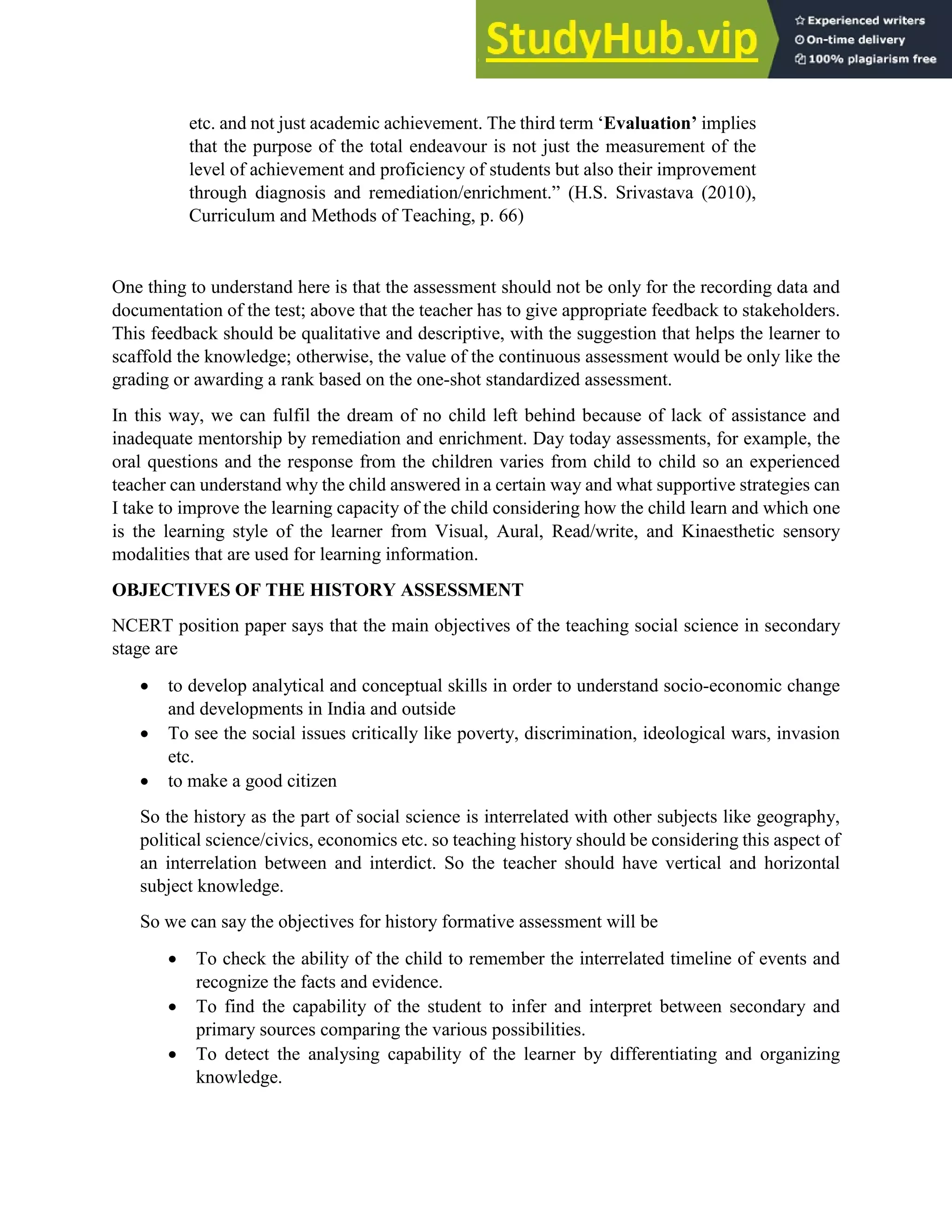The document discusses assessment methods in teaching history. It argues that assessment should be continuous and formative to provide ongoing feedback to students and teachers. Both summative and formative assessments are needed to fully understand student learning. Formative tools like observations, oral questions, group projects and VARK assessments can help teachers tailor instruction to student needs and learning styles. The goals of history assessment should be to evaluate students' abilities to recall facts, interpret sources, analyze information, and evaluate evidence from a historical perspective. Continuous assessment provides a more holistic and supportive approach to improving student achievement.







